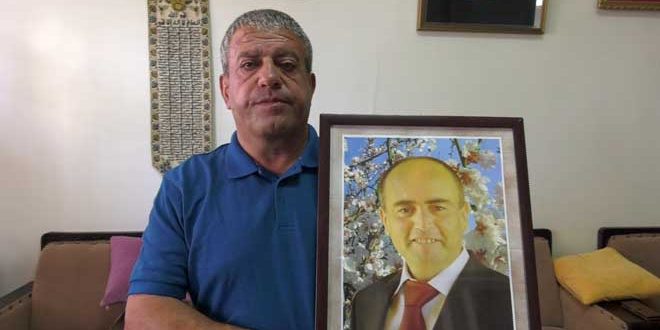On the anniversary of the martyrdom of the liberated prisoner Sitan Al-Wali, the people of the Golan are more committed to the path of struggle
Eleven years have passed since the martyrdom of the liberated prisoner, Sitan Nimr Al-Wali, as a result of a terminal illness that he suffered due to deliberate medical neglect in the Israeli occupation prisons.
Al-Wali, spent 23 years, during which he suffered the most heinous forms of torture.
Dean of the liberated Syrian prisoners, Sidqi Al-Maqt, said in a statement that the martyr Al-Wali was one of the founders of the resistance movement in the occupied Golan, which carried out several operations against the Israeli occupation.
Al-Maqt added that martyr Al-Wali during the period of his detention, which extended for more than two decades, participated in the struggles of the captive movement against the occupation and led empty bowel battles and strikes in detention centers.
Al-Maqt that Al-Wali was released from prison in 2008 after a serious deterioration in his health, which later resulted in his death.
Meanwhile, the liberated prisoner, Assem Al-Wali, who spent 25 years in the prisons of the occupation, stressed that the people of the occupied Syrian Golan will continue the path of struggle to confront the occupation.
In her turn, Imitethal al–Wali, the sister of the martyr, said that Seitan was a role model for patriotism and sacrifice for the country, noting that he was in high spirits despite his long years of detention and illness.
It is noteworthy that the martyr Seitan Al-Wali issued a book entitled “The Baskets of Hunger” in which he talks about the strikes that the prisoners fought in the occupation prisons, from planning to implementation and victory.
The captive movement presented a number of martyrs in the Israeli occupation prisons, including the prisoner Hayel Hussein Abu Zaid, one of the founders of the resistance movement in the Golan, the fighter Asaad Al-Wali, and the martyr Sitan Al-Wali, who was martyred on the Golan on the 24th of April 2011.
Inas Abdulkareem

